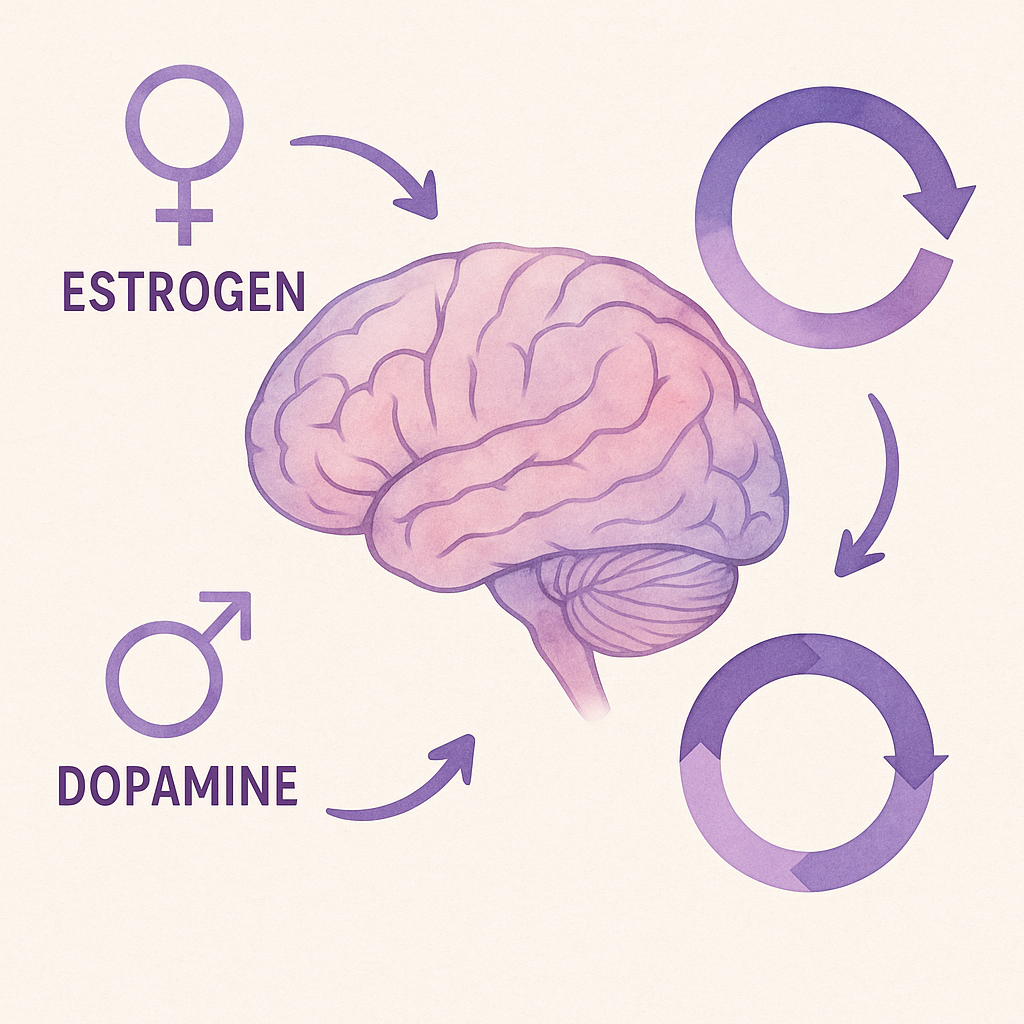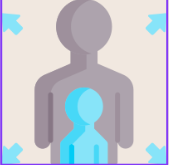How Cycle Syncing Can Support ADHD and AuDHD — Without Perfectionism or Rigidity
Many neurodivergent folks with ADHD and AuDHD struggle with eating consistently — let alone syncing meals to their menstrual cycle. This blog breaks down why eating with your cycle can actually reduce overwhelm and improve focus, mood, and body awareness over time.
Why Eat With Your Cycle When You Have ADHD?
If you have ADHD or AuDHD, you probably know first hand how hard eating is in general… There are so many factors that make eating regularly really challenging for neurodivergent folks.
This is often due to a mix of executive dysfunction, sensory sensitivities, interoception challenges, and irregular appetite signals, making it hard to plan, prepare and respond consistently to hunger and fullness.
So why add another component, eating slightly differently throughout the four phases of your menstrual cycle, when just day to day eating is already a major challenge?
I wrote a bit about this in another blog post, basically talking about how ‘cycle syncing’ is typically presented through social media is the farthest thing from being accessible for many neurodivergent people.
And this very specific, rigid, aesthetically focused idea of what it looks like to eat for your menstrual cycle can be a huge deterrent for many folks with ADHD and AuDHD to explore what eating for their menstrual cycles can look like for them.
Eating in ways that support your menstrual cycle can and should be done in ways that are accessible to people with ADHD and AuDHD - like most things that are presented through a more neurotypical lens, we just need to find the right approach that works for our neurodivergent brains.
Five Reasons to Consider Experimenting with Cycle Syncing for ADHD and AuDHD
1. The Hormone Neurotransmitter Nutrition Connection
So many of the neurotransmitters that regulate ADHD are directly influenced by hormones that rise and fall throughout the menstrual cycle - estrogen and dopamine being the most well known, but there are many more. Supporting our hormone health is one of the best things we can do to support our ADHD.
In order to function, both hormone and neurotransmitter systems rely on materials from our diet - things like amino acids from protein, minerals, vitamins, antioxidants, fatty acids, sugars and so many other nutrients. One of the most important things we can do for our hormones and ADHD is to provide our bodies with the nutrients needed by our brain and all the glands and organs that create and regulate our hormones.
I’ll be writing a separate blog post on the physiology of what’s going on in the body and ADHD brain during the four phases of the menstrual cycle soon - if you’re not already on my email list sign up so you don’t miss it! I send out emails once or twice a month updating you about any new blogs or things I’m working on.
Until then, download my free Cycle Phase Meal Guide for ADHD for a quick overview of what happens in the body and ADHD brain throughout the menstrual cycle, with ideas for recipes to support your body and brain throughout each phase.
2. Cycle syncing meals can help reduce decision fatigue
Having a slightly different approach to eating throughout the four phases of your menstrual cycle can be so helpful for reducing decision fatigue - a phenomenon commonly experienced by people with ADHD where the overwhelm of all the potential options for meals results in decision paralysis, frustration and often just eating nothing at all.
Instead of freezing over all the potential options you can eat, when you eat for your cycle it breaks down all those options into 4 groups, which can make deciding what to eat more efficient, as well as strategic.
3. Cycle syncing can and should be done through a neurodivergent lens
There are SO many ways to apply cycle syncing for ADHD and AuDHD - it doesn’t need to look any certain way, it just needs to work for you.
Cycle syncing for ADHD and AuDHD can and should be done in ways that are fluid and help reduce stress - not add more overwhelm to your life.
4. Cycle syncing can be a tool to help improve interoception
Learning about the different phases of your menstrual cycle and how the hormone and neurotransmitter fluctuations affect your ADHD is an excellent blueprint for helping you learn more about your body, so over time you can get better at giving your body what it needs, and doing so throughout each cycle phase.
Becoming more aware of the changes in your body throughout your menstrual cycle is also a great way of improving interoception - your brain’s ability to interpret and eventually respond to internal body signals like hunger, fullness, thirst, the need to rest etc.
People with ADHD and AuDHD often have less interoception than neurotypical people, which ultimately makes taking care of ourselves a lot harder.
Working with your menstrual cycle through eating in ways that support each phase creates containers so you can better respond to whatever your body needs most during that phase. This becomes easier and more intuitive the longer you do it over time.
5. Learning more about how to care of your body through learning about your menstrual cycle can help rebuild bodily autonomy
The medical system and society rarely acknowledges that people with menstrual cycles have many different needs to those who don’t menstruate.
This is largely due to gender bias resulting from a society where cis men, who don’t menstruate, have historically held positions of power (and still do, disproportionately).
The reality that we know very little about so many conditions that affect women and AFAB folks is one result of this gender bias and power imbalance. In general, research, funding and support has and still largely focuses on conditions that impact cis men, not women or AFAB people.
This pattern closely mirrors the lack of understanding and support received by neurodivergent people, especially neurodivergent women and AFAB folks. Much of this has to do with how so much of our society was built by and for neurotypical people, and if you’re neurodivergent it's largely up to you to figure out how to exist in a society not built for you.
Learning about your menstrual cycle and working with the different phases, through a neurodivergent lens, can be a powerful way to take back our bodily autonomy that’s for the most part been ignored by the medical system.
Menstrual cycle education and cycle syncing teach us how we can support our bodies through making small, realistic and accessible changes to certain things that we are already doing daily, like eating.
Cycle syncing for ADHD and AuDHD can be such a powerful tool that helps us reconnect with our bodies and make decisions for ourselves that take our bodies, natural cycles and neurodivergence into account.
Eating with your cycle when you have ADHD or AuDHD isn’t about doing things “perfectly.” It’s about finding patterns that support you, and using them as tools to make eating a little easier, a little more intuitive, and a little more connected.
You deserve care that honours both your neurodivergence and your hormones — and cycle syncing has so much potential to be one of the ways to make that care feel more accessible.
💌 Don’t forget to download the free Cycle Phase Meal Guide For ADHD and join the email list so you don’t miss the next post in this series.



